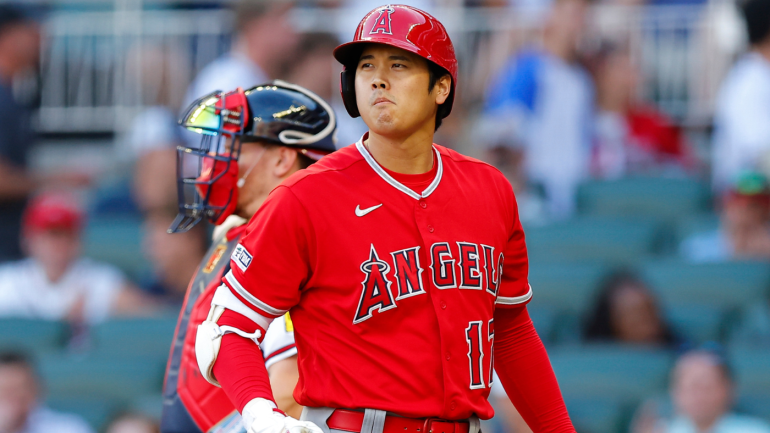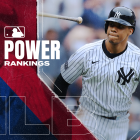
Does Major League Baseball need to push back the trade deadline? That may be a growing sentiment within the game. John Shea of the San Francisco Chronicle recently wrote that lead front-office decision makers have "for many years" talked among themselves about moving the deadline back to Aug. 15. That may seem like a small procedural detail from afar, but there's good reason for it.
More to the point, pushing back the deadline in theory might make for a more active deadline, which would be good from business from the league standpoint.
With all this in mind, let's have a quick look at why a trade deadline later on the MLB calendar might be a good thing and might merit serious consideration.
1. Teams probably need more time to pick a lane
MLB now admits 12 teams to the postseason, which is a particularly high figure given the league's history of playoff exclusivity. Granted, it's not the NBA or the NHL, but it's a bit of a sea change when viewed through the prism of baseball's past.
Laying aside the merits or demerits of such a structure, let's simply acknowledge that a swollen playoff field necessarily swells the ranks of contenders. In the here and now, the contender-seller balance is thrown off even more by the winnable nature of both Central divisions – the AL Central in particular. The bar is so low in those circuits that it's hard for even the bottom-feeders to truly bail on the season by late July. Given that those divisions are largely populated by teams whose owners are loath to invest in their rosters, does this figure to change? Probably not. It looks like a semi-permanent condition, and it adds to the deadline market imbalance.
Given all this, pushing back the deadline from its traditional home in late July/early August to at least the middle of August would give more time for sorting out. With more games played and thus fewer games remaining, teams on the border would have more clarity and thus may be more willing to commit to an active deadline. That's the theory, anyway. One intractable problem these days is that front offices are heavily populated by the risk-averse who prefer doing nothing to doing something. A delayed deadline won't turn such meeklings into headline-grabbing gamblers, but it would at least help on other fronts.
2. A later deadline might mean more stars on the block
This is very much related to the clarity argument, and we have a couple of compelling examples from this year's deadline. Leading to this year's Aug. 1 trade deadline, the Angels famously pulled two-way superstar Shohei Ohtani off the market and instead proceeded as buyers. While that's praiseworthy – going for it is to be hailed on principle, especially these days when it's all too rare – it hasn't worked out. Thanks to a post-deadline skid, the Angels at this writing are below .500, seven games out of the final AL playoff spot, and behind four teams for that spot. If presented with these realities, the Angels would likely have chosen a different deadline tack and perhaps even moved Ohtani. That, suffice it to say, would be an earth-shaking blockbuster that would've dominated the sports news cycle.
Similarly, the Padres, if allowed to gather another two weeks of "standings intel," might have opted to dangle core contributors like Blake Snell, Josh Hader, and maybe even Juan Soto. The post-deadline stretch of schedule has been unkind to their playoff hopes and may have inspired a different approach.
On the other side of things, this year's deadline was notable for the almost complete absence of impact bats. The potential addition of Ohtani and Soto to the seller side would've engaged more buyers and added a major jolt to the proceedings.
3. Teams don't have a second deadline these days
Time was when there were two trade deadlines – an initial non-waiver variant and then a waiver-period deadline. While the latter deadline, which came roughly a month after the first one, was generally less needle-moving, you still saw some major trades go down in August. The 2017 swap that sent Justin Verlander from the Tigers to the Astros is but one recent example of a waiver-period blockbuster.
That second deadline, however, is no more and doesn't seem likely to return. While it's still possible to acquire players in August, said players are much less likely to be noteworthy. If we're not going to provide clubs with that second trading period, then maybe MLB should at least give them more time to formulate a proper approach to the only deadline left standing. And from the fan standpoint, hey, that's another fortnight of life-affirming trade rumors to consume.
MLB under commissioner Rob Manfred hasn't hesitated to make on-field changes to increase the sport's appeal at large and ramp up fan engagement. In that way, moving back the trade deadline – even though that's an off-field matter – would be in keeping with that recent approach. It's probably something the league should consider.






















